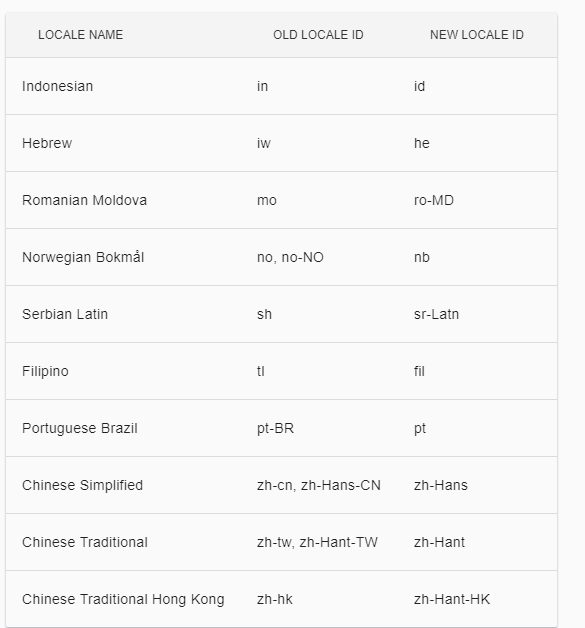Angular pipes can help you with internationalization: the DatePipe, CurrencyPipe, DecimalPipe and PercentPipe use locale data to format data based on the LOCALE_ID.
By default, Angular only contains locale data for en-US. If you set the value of LOCALE_ID to another locale, you must import locale data for that new locale. The CLI imports the locale data for you when you use the parameter --locale with ng serve and ng build.
If you want to import locale data for other languages, you can do it manually:
src/app/app.module.ts
content_copy
import { registerLocaleData } from '@angular/common';
import localeFr from '@angular/common/locales/fr';
registerLocaleData(localeFr);
The files in @angular/common/locales contain most of the locale data that you need, but some advanced formatting options might only be available in the extra dataset that you can import from @angular/common/locales/extra. An error message informs you when this is the case.
src/app/app.module.ts
content_copy
import { registerLocaleData } from '@angular/common';
import localeFrCa from '@angular/common/locales/fr-CA';
import localeFrCaExtra from '@angular/common/locales/extra/fr-CA';
registerLocaleData(localeFrCa, localeFrCaExtra);
See the table about old and new locale too
![enter image description here]()

